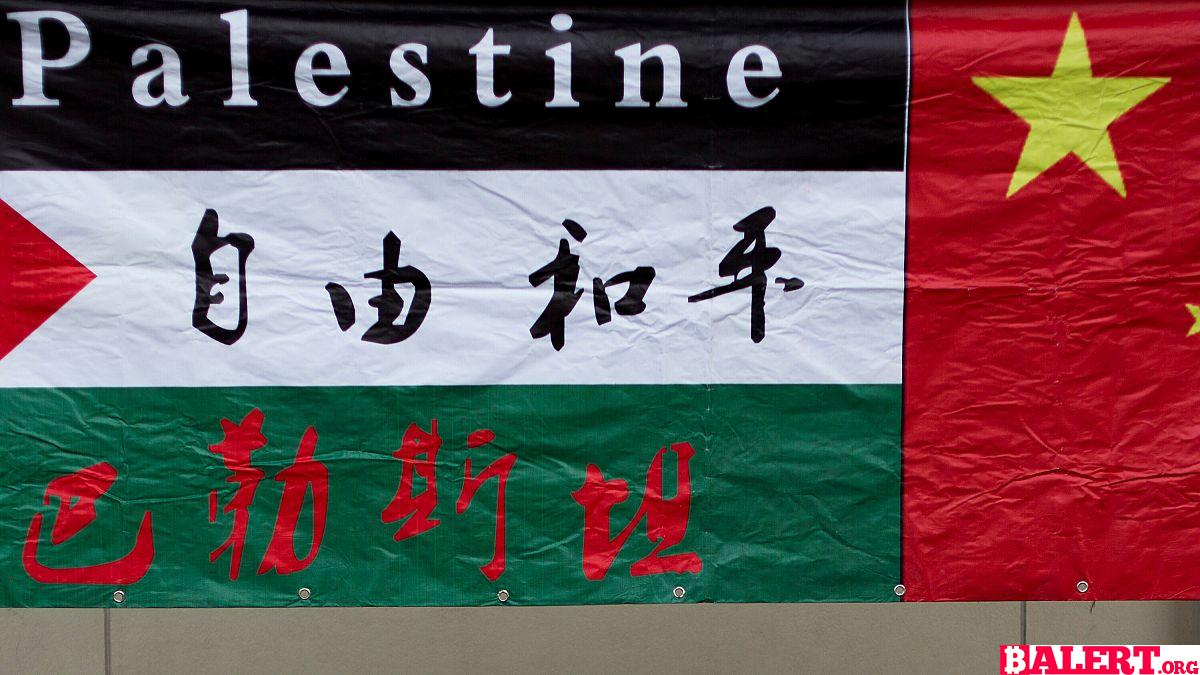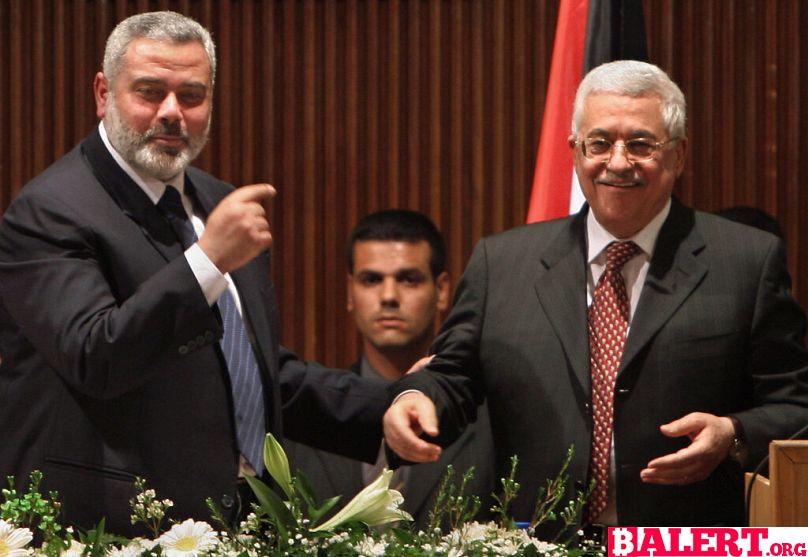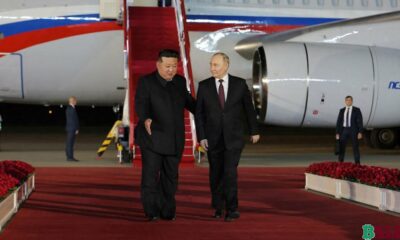World
Palestinian Unity Agreement: A Step Towards Reconciliation
Explore the significance of the Palestinian Unity Agreement as a crucial step towards reconciliation. Discover its impact on regional stability, unity among factions, and the future of peace efforts in the Middle East.

Palestinian Unity Agreement: A Historic Moment

In a significant political development, the rival Palestinian factions Hamas and Fatah have reportedly signed an agreement aimed at “ending division and strengthening Palestinian unity.” This announcement emerged from a press conference held on Tuesday, where Mousa Abu Marzook, a representative of the Hamas delegation, expressed optimism about the new agreement, describing it as a completion of a “course of reconciliation.”
Abu Marzook stated, “We’re at a historic junction. Our people are rising up in their efforts to struggle,” emphasizing the urgency and importance of unity among Palestinians during these challenging times. This agreement was covered by Chinese state media, which indicates a potential shift in diplomatic dynamics, as China seeks to position itself as a player in the ongoing conflict resolution efforts, despite its historical lack of involvement in the Israel-Palestine conflict.
While the world watches, the state media’s reporting reflects China’s intention to insert itself into the peace process without fully engaging in the existing multilateral negotiations, which have yet to yield a lasting ceasefire. This news coincides with U.S. Secretary of State Antony Blinken’s remarks, who indicated that a ceasefire agreement between Israel and Hamas is “inside the 10-yard line,” suggesting that a resolution may be imminent.
The Long-Standing Rivalry
The political landscape in Palestine is complex, primarily dominated by two main factions: Fatah, formally known as the Palestinian National Liberation Movement, and Hamas. Their rivalry has deep roots, dating back to 2007 when Hamas took control of Gaza after forcibly ousting the Fatah-affiliated forces loyal to Palestinian President Mahmoud Abbas. This violent power shift resulted in Hamas governing the impoverished coastal enclave, while the Fatah-led Palestinian Authority (PA) manages parts of the occupied West Bank.
Fatah has faced significant public backlash, often being characterized as corrupt and disconnected from the populace. Many view it as a collaborator with Israel due to their joint security coordination efforts. Over the years, multiple attempts have been made to foster unity between Hamas and the Palestinian Authority, yet these efforts have repeatedly faltered due to deep-rooted animosities and the West’s insistence that any government including Hamas must explicitly recognize Israel.
In 2006, after Hamas secured victory in the Palestinian legislative elections, attempts were made to establish a unity government in collaboration with President Mahmoud Abbas. A deal was eventually struck in which the unity government, inclusive of Hamas, would agree to “respect” the Palestinian Authority’s 1993 peace agreements with Israel. However, this government faced immediate rejection from Israel and the United States, who imposed economic sanctions, leading to its rapid collapse amid intense factional violence.
The aftermath saw Hamas assert its dominance in Gaza, while Fatah retained control over the Palestinian National Authority in the West Bank. The tensions between these factions not only shaped the political landscape but also affected the lives of countless Palestinians, particularly in refugee camps across the territory.
World
Dominique Pelicot Testifies in Harrowing Rape Trial
Join us as Dominique Pelicot courageously testifies in a harrowing rape trial, shedding light on the complexities of trauma and justice. Her powerful story raises crucial questions about the legal system and the importance of support for survivors.

Dominique Pelicot Takes the Stand in Shocking Rape Trial
In a courtroom drama that has captivated France and garnered international attention, Dominique Pelicot, the man at the center of a harrowing rape trial, finally addressed the court. With tears streaming down his face, he recounted how his wife had been instrumental in helping him cope with a tumultuous past marked by trauma. He revealed that he had endured a sexual assault at the tender age of nine while hospitalized, and he also witnessed a gang rape during his teenage years while working as an apprentice electrician on a construction site.
“She didn’t deserve this, I acknowledge that,” Mr. Pelicot stated, his voice barely audible as he struggled to convey his emotions. The gravity of the situation weighed heavily on him, and the courtroom fell silent, straining to catch his every word.
Now 71 years old, Mr. Pelicot faces serious allegations of drugging his wife, Gisèle Pelicot, whom he has been married to for half a century, over a span of nearly ten years. Prosecutors contend that he used drugs to render her comatose, allowing him to rape her repeatedly. Furthermore, authorities allege that he went so far as to invite numerous men into their home, facilitating a nightmarish scenario where they, too, engaged in the assault of his wife.
Overall, 51 men, including Mr. Pelicot, are on trial concurrently, primarily facing charges related to the aggravated rape of Ms. Pelicot. Among them, one individual has already pleaded guilty to similar crimes, admitting to drugging his own wife to assault her and inviting Mr. Pelicot to partake in the horrific act while she was incapacitated.
Mr. Pelicot’s unexpected testimony came after a tumultuous start to the trial. Just a week in, he was stricken with severe health issues that forced him to miss four consecutive days in court. The head judge ultimately decided to postpone proceedings, as Mr. Pelicot was diagnosed with kidney stones, a kidney infection, and prostate complications, adding yet another layer of complexity to this already harrowing case.
World
Meta Bans Russian State Media Outlets from Social Media Platforms
Explore the implications of Meta’s decision to ban Russian state media outlets from its social media platforms. Understand the impact on information dissemination and the ongoing battle against misinformation in the digital landscape.

Meta Imposes Global Ban on Russian State Media Outlets
In a significant move, Meta Platforms, Inc., the parent company of Facebook, has announced the prohibition of Russian state media outlets, including RT (Russia Today) and Rossiya Segodnya, from all its social media platforms. The decision stems from the company’s concerns regarding the deceptive strategies employed by these media organizations to execute covert influence operations across the internet.
Meta made this announcement on Monday, emphasizing that the ban will be enforced worldwide across its various platforms, such as Instagram, WhatsApp, and Threads. The rollout of this ban is expected to take place over the coming days.
Statement from Meta
A spokesperson for Meta elaborated on the decision, stating, “After careful consideration, we have expanded our ongoing enforcement actions against Russian state media outlets. As a result, Rossiya Segodnya, RT, and other affiliated entities are now banned from our applications globally due to their involvement in foreign interference activities.”
For further insights into this development, watch the video in the player above.
World
Trump Recalls Alleged Assassination Attempt While Golfing
Explore Donald Trump’s chilling recollection of an alleged assassination attempt he experienced while enjoying a round of golf. Delve into the tense moments and his reflections on safety, fame, and the unpredictability of public life.

In a recent interview on the social media platform X, Republican presidential nominee Donald Trump recounted a harrowing incident he claims to have experienced while playing golf. Trump described how, during a peaceful Sunday morning round with friends, the tranquility of the day was abruptly shattered by the sound of gunfire in the air.
“It was a beautiful day, everything was just perfect,” Trump reflected. “Then all of a sudden, we heard shots being fired—probably around four or five in total.” He went on to explain that a Secret Service agent was the first to spot the suspect, who was allegedly armed with an AK-47, a powerful assault rifle.
“The agent saw the barrel of the weapon and immediately took action, returning fire at the barrel and aiming in the direction of the bushes,” Trump detailed. “I would have loved to have sunk that last putt, but we decided it was best to leave the scene promptly.”
Trump expressed his gratitude towards the agents and a vigilant civilian who aided in tracking down the suspect, who was eventually apprehended following a high-speed chase.
Suspect Faces Multiple Federal Gun Charges
The FBI has identified the suspect as Ryan Wesley Routh, accusing him of targeting Trump during his time at the golf club in West Palm Beach, Florida. According to an FBI report, Routh had allegedly hidden among the hedges of the golf course for an astonishing 12 hours. Authorities discovered an SKS-style assault rifle, a GoPro camera, and a bag of food at the scene.
The 58-year-old Routh is now facing two serious federal gun charges. If convicted on both counts, he could face a combined maximum sentence of 20 years in prison. Notably, neither of the charges is directly related to an assassination attempt. The first charge pertains to possessing a firearm despite a prior felony conviction, which carries a potential 15-year sentence, a fine of $250,000 (€225,000), and three years of supervised release.
The second charge involves possession of a firearm with an obliterated serial number, which could result in a five-year prison term, the same financial penalties, and also three years of supervised release. As the investigation continues, additional charges could be forthcoming.
While the motive behind Routh’s actions remains unclear, his digital footprint reveals strong political affiliations, particularly concerning issues surrounding Ukraine and China. Routh consistently expressed support for Ukraine across various social media platforms, even claiming to have orchestrated a recruitment scheme for international volunteers aiming to assist Ukraine in its fight against Russia’s invasion. This behavior has been denounced by Ukrainian soldiers and members of the International Legion, who disavowed Routh’s actions and motives.
-

 Business4 months ago
Business4 months agoObituary: Dan Collins
-

 Business3 months ago
Business3 months agoThe Significance of Jackson Hole: A Central Banking Tradition
-

 Gaming5 months ago
Gaming5 months agoMore than a thousand students vowed not to work for Amazon and Google due to the Nimbus Project.
-

 World5 months ago
World5 months agoRussia and North Korea Strengthen Defense Ties
-

 Business5 months ago
Business5 months agoJump Crypto Invests $10 Million in Pro-Crypto PAC
-

 Article5 months ago
Article5 months agoCreative Design Applications Developed with Artificial Intelligence
-

 Tech2 months ago
Tech2 months agoNew Leaks and Features About the Samsung Galaxy S25 Ultra
-

 Gaming5 months ago
Gaming5 months agoThe Inspirational Success Story of Avon’s Founder Who Sold Books Door to Door














